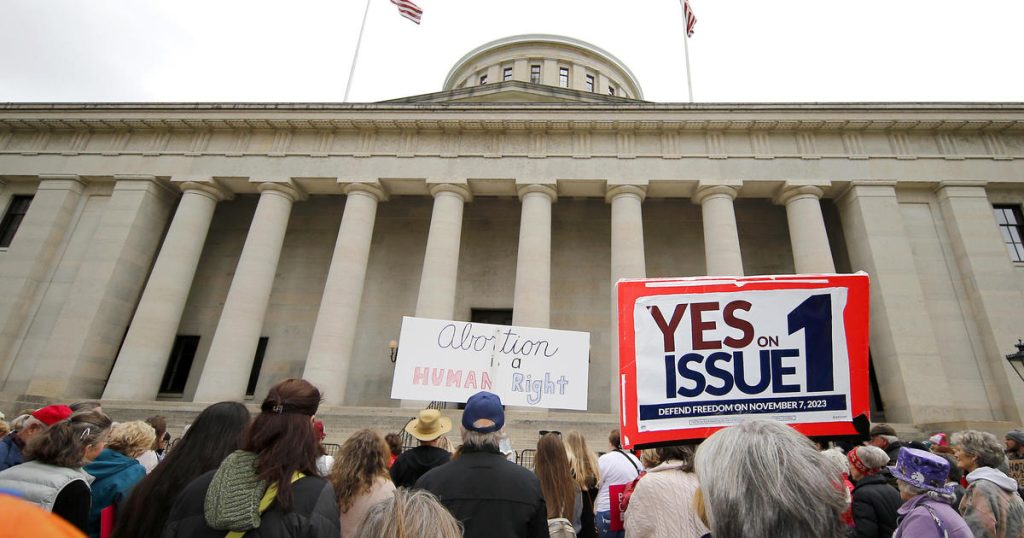In Columbus, Ohio, a county judge declared that Ohio’s law restricting abortion, known as the heartbeat law, was unconstitutional. This law, which banned most abortions once cardiac activity was detected as early as six weeks into pregnancy, had been paused pending the legal challenge before Judge Christian Jenkins. Jenkins cited last year’s voter-approved amendment protecting reproductive rights as the basis for his decision, stating that Ohio’s Attorney General did not recognize the power shift over the abortion issue to the states by the U.S. Supreme Court. He emphasized that the state sought to diminish and limit constitutional protections of abortion rights despite the adoption of the constitutional amendment by a majority of Ohio’s voters.
The ruling was made in response to a lawsuit brought forth by the ACLU of Ohio, Planned Parenthood Federation of America, and the law firm WilmerHale on behalf of abortion providers in the state. This legal challenge was the second round of litigation filed against the heartbeat law, with the first one being brought to federal court in 2019. After being blocked under the Roe v. Wade decision, the law was briefly allowed to go into effect in 2022 following the Supreme Court’s overturning of Roe. The opponents of the law argued that it violated protections outlined in Ohio’s constitution, guaranteeing individual liberty and equal protection and claiming that it was unconstitutionally vague.
The 2019 heartbeat law was signed by Governor Mike DeWine after two previous vetoes citing Roe v. Wade, following appointments to the Supreme Court made by former President Donald Trump that solidified its conservative majority. The Ohio litigation was part of a larger national debate over abortion rights post the Dobbs decision, which overturned Roe v. Wade. Issue 1, the constitutional amendment that Ohio voters passed last year, grants individuals in Ohio the right to make their own reproductive decisions. The state Attorney General, Dave Yost, acknowledged that this amendment rendered the ban on abortion unconstitutional but sought to maintain certain notification and reporting provisions of the 2019 law.
Retaining these provisions, according to Judge Jenkins, would have subjected doctors performing abortions to criminal charges, fines, and license suspensions, as well as requiring patients to undergo additional procedures before obtaining an abortion. Yost’s office stated that they were reviewing the ruling and would decide within 30 days whether to appeal. The decision by Judge Jenkins was hailed as a significant ruling upholding voters’ wishes and demonstrating the power of Ohio’s Reproductive Freedom Amendment in safeguarding reproductive rights. This decision marked a crucial moment in the ongoing legal battles over abortion rights in Ohio and across the nation, in the wake of the shifting legal landscape post the Dobbs decision.


